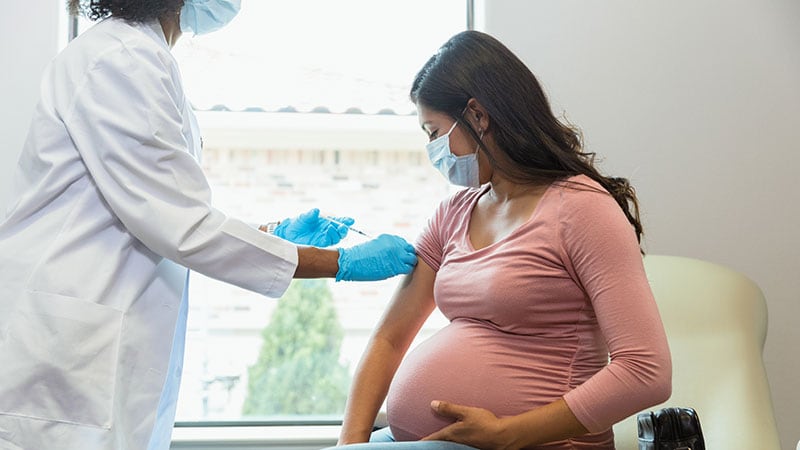If your patient is pregnant or older than 60 years and due for a respiratory syncytial virus (RSV) shot, now’s the time to act.
A major new review highlighted the vaccine’s impact and safety, particularly for older adults and infants — the groups most at risk for severe illness from the virus.
In adults aged 60 or older, the vaccine reduced RSV-related illness by 77% and serious illness by 67% compared to placebo. For babies, the maternal vaccine reduced RSV-related illness by 54%, severe illness by 74%, and hospitalizations by 54%.
“These data really help us feel more confident in the results of how stunning and effective these vaccines are and how safe they are,” said Yvonne Maldonado, MD, chief of the division of infectious diseases in the Department of Pediatrics at Stanford Medicine, Palo Alto, California.
RSV vaccines were approved 2 years ago, and evidence supporting their safety and effectiveness continues to grow. A 2022 phase 3 clinical trial found that the maternal vaccine cut infants’ hospitalization risk by 57% within 6 months of birth, and real-world data from the 2023-2024 season showed that vaccines for older adults reduced hospitalization risk by 73%-83%. The new analysis published Monday pulled together data from 14 clinical trials involving more than 100,000 people — offering the strongest confirmation yet that the shots work, Maldonado said.
“Each trial only tells part of the story,” said KM Saif-Ur-Rahman, PhD, lead author of the study and senior researcher at the University of Galway, Galway, Ireland. Pooling data from multiple trials enables “a much clearer and more reliable picture than any single study could provide.”
With RSV season fast approaching, the findings reinforce current guidance: Encourage vaccination now in patients between weeks 32 and 36 of pregnancy and in adults aged 60 or older with risk factors.
A Vaccine Decades in the Making
It took researchers decades to get RSV vaccines right, following a failed attempt in the mid-1960s. In 2012, the discovery of a protein on the surface of the virus (prefusion F) sped up development — before then, testing for RSV was rare, and the effects of the virus not well understood.
Scientists now know that RSV can be just as serious as the flu for adults — especially those aged 60 or older. In the US, studies suggest 60,000-160,000 older adults are hospitalized with RSV each year, and up to 10,000 of them die from the virus.
RSV also sends more infants to the hospital than any other illness. Every year, about 2% of children younger than 5 years are hospitalized with RSV, which can lead to complications like chronic asthma or severe bronchiolitis. While infant deaths from RSV are rare in the US — likely due to increased use of the vaccines — the virus kills at least 100,000 children globally every year.
“This is a really important disease that we don’t talk about very much,” said Maldonado, who was not involved in the study review.
What We Still Don’t Know
Currently, eligible older adults and pregnant people receive a single dose of the RSV vaccine — and that’s it. But scientists still aren’t sure how long their immunity to the virus lasts. Like flu and colds, RSV attacks the nose and airways — a trait that tends to produce shorter-lasting immunity, so “there might be a need for boosters,” Maldonado said.
RSV vaccines containing live replicating virus — which are still in development— could provide longer-term protection, she said, but more research is needed to determine how well they work. The Cochrane Review included five clinical trials of these investigational (unauthorized) live RSV vaccines in infants and children and found “very uncertain” evidence of effectiveness compared to placebo. This uncertainty reflects limited data and small sample sizes, rather than conclusive evidence of ineffectiveness.
Later this fall, the researchers plan to publish two more analyses of different RSV vaccines’ effectiveness and safety.
“It‘s an exciting area to study,” Maldonado said. “I’d also be interested in seeing more long-term data on immunocompromised people and whether they might need boosters more quickly than healthy people.”

